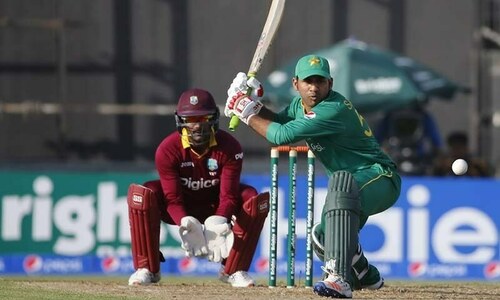• Task Force member says citizens visit hospitals after developing complications
• Poor health, diagnostic facilities another reason for high number of deaths
ISLAMABAD: Though health experts have been claiming that Covid-19 has proved less lethal among Asians, global data shows that Pakistan’s mortality rate is far higher than many regions.
Member of the Scientific Task Force on Covid-19 Dr Javed Akram was of the view that more Pakistanis died because they visited hospitals due to complications arising from Covid-19 rather than the infection itself. He also blamed poor health and diagnostic facilities for the high number of casualties.
A document of the National Command and Operation Centre (NCOC), available with Dawn, said the coronavirus mortality rate of Pakistan was 2.24 per cent against 1.97pc globally. It further showed that 28,870 deaths were reported across the country, out of which 61pc were males and 39pc females.
The minimum age of a Pakistani national who succumbed to the infection was two months and the maximum age was over 100 years, with the median age calculated at 62 years, the document revealed.
Out of the total number of deaths, 78pc were over the age of 50; 69pc had chronic comorbidity; and 91pc of the deceased were hospitalised with an average stay of 6.6 days (ranging from one day to 173 days). Similarly, 45pc of the hospitalised patients remained on ventilators with an average stay of 3.2 days (ranging from one day to 42 days).
The document showed that 172 deaths were reported among health staff, out of whom 103 were doctors, one was a medical student, four were nurses and 64 were paramedics.
Talking to Dawn, Dr Akram accepted that far more patients lost their lives in Pakistan compared to global percentage of deaths.
“Unfortunately in Pakistan people do not visit hospitals with Covid-19; rather they visit hospitals once they develop complications. Besides, we lack state-of-the-art health and diagnostic facilities,” he said, adding “our intensive care units remained under pressure or were overburdened due to which mortality ratio increased”.
When it was pointed out that the government had claimed 100pc ventilators were never occupied in Pakistan, Dr Akram said although there were the same kinds of people and economic conditions in Italy and France, more casualties were reported in Italy.
Dr Akram, who is also the vice chancellor of the University of Health Sciences, said the situation might deteriorate across the globe in winter as 2.5 million people die of pneumonia every year in the cold season.
Meanwhile, the NCOC data showed that seven people died of coronavirus and 357 more tested positive in the last 24 hours. As many as 728 patients were admitted to hospitals across the country.
Published in Dawn, December 19th, 2021













































